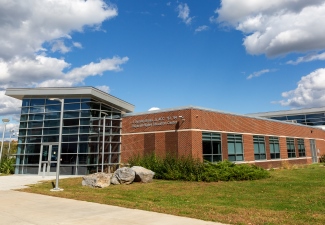Game Offers SUNY Plattsburgh Students Experience Balancing Economy and Ecology
A simulation game in Professor Curt Gervich’s sustainability and environmental management courses is allowing students to manage their own fishing companies.
Fish Banks, a combination board game, online simulation and group problem-solving project, makes students responsible for maximizing profits while considering sustainability concerns like fish population.
A Game of Strategy
The classes are broken up into teams, each representing a fishing company vying for profit at the same fishery. Using information from annual reports on weather, fish density, boat costs, salvage values and total assets, the groups decide how many boats to purchase or sell and where to put them: in the coastal region or the deep sea.
“Their goal is to maximize their profits without crashing the fishery,” Gervich said.
It’s a game of strategy.
“We took a big risk, and we ended up coming up with a benefit,” said Ed Duff Jr., an environmental science and ecology major from Woodstock, N.Y. His team purchased the highest number of boats during the game, which got them an early lead on overall assets. That move later proved costly, when the salvage value of boats sunk.
Hands-on Learning
For Duff, applying the lessons he learns in class to real-life simulations is important.
“It keeps you interested and engaged in the class and what you’re learning about,” he said.
Another team’s strategy was a little different. Realizing that the deep sea was being overfished and noticing trends in fish yields, they put their boats in the coastal region.
“This is more hands-on,” said Dayna Malik, an environmental studies major from Albany. “It’s better than just a lecture.”
Simulations Encourage Analytical Thinking
Gervich has been using simulations to complement his curriculum for 10 years. While the projects are fun and engaging, he said the real payoff is when students think analytically, critically and strategically.
“Simulations have a unique ability to allow students to understand the inter-relationships between different concepts from the course,” he said, pointing out examples like economic incentives and environmental degradation. “These are all concepts that are covered individually in my courses, but the simulation allows students to experience the ways these concepts interact when it comes to environmental management.”
News

SUNY Adirondack Students Benefit from New Dual Agreement with SUNY Plattsburgh Queensbury
